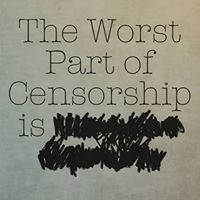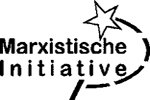25. October 2016
Open letter from Israelis and Jewish cultural workers in Berlin

We, cultural workers, academics and activists, Jewish and Israeli, who reside or are active in Berlin, take a stand against statements made by organizations, newspapers and politicians that undermine the right to freedom of expression regarding the Israel-Palestine conflict.
Many of us left Israel because we could not or chose not to continue living in fear of threat for criticism of the occupation policy, or increased restriction on our freedom of expression. For the last several years years, Netanyahu's right-wing, nationalist government has endeavoured to silence progressive and Palestinian voices. Funding for Palestinian-Israeli cultural institutions has been frozen, dissident artists have been threatened by racist organizations, and enormous pressure has been imposed on critical voices in academia and media.
We always hoped that Berlin would be the place where an open debate is possible, and in recent years, we experienced to a certain degree the fulfillment of these hopes. In light of developments in Israel, we are disturbed that now even in Berlin, expressions about the Israeli occupation policy are denounced as ‘hatred of Israel’ or ‘anti-Semitism’. Moreover, this call for political censorship comes from organizations and politicians who do not define themselves as right-wing—nationalist, or even identify as left-wing.
This letter is written in reaction to the current campaign against the Ballhaus Naunynstraße and the ‘After the Last Sky’ festival which was organized in partnership with people who allegedly allowed ‘anti-Israeli sentiment’. In addition to this slander were accusations that certain participants advocated violence during the festival. Politicians and the media called for the withdrawal of public funding on the basis of critical remarks against the State of Israel by Jewish and Palestinian participants. Moreover, the actual or alleged support of the BDS Movement by curators of the festival was scandalized.
We the undersigned have different opinions on concepts such as ‘apartheid’, ‘colonialism’ or ‘ethnic cleansing’ as useful or accurate descriptions of the past or present of the State of Israel. We also have different positions about the Palestinians call for boycott, Divestment and Sanctions against the State of Israel. However, we insist that a discussion of these concepts and the arguments by the BDS Movement are a legitimate part of a public debate on the political situation in Israel-Palestine.
We are opposed in principle to political censorship of individuals or cultural institutions that allow space to criticism of Israeli policy. The chilling effect of these threats is the destruction of cultural debate in open society. They also prevent the current debate on the responsibility of Germany regarding the political situation in the Middle East, and particularly on the Israeli occupation which has continued for almost fifty years.
As Jews and Israelis, who cannot avoid dealing with Middle Eastern topics and are affected by regional developments, we are alarmed by calls for the restriction of free expression, directed also at our freedom of expression as academics and artists. We see the instrumentalization of accusations of anti-Semitism against left-wing Palestinians, Israelis and others as an obstacle in the fight against existing anti-Semitism, which is of particular concern today in light of the right-wing rise in Germany.
We are aware that political expressions about Israel and Palestine may also contain anti Semitism and anti-Muslim racism. This is precisely the reason we want to highlight the importance of centering the debate around human rights and equality. The basic rights of Palestinians are as important to us as those of the Jewish-Israeli population. The Palestinian cultural festival ‘After the Last Sky’ was organized by migrant and anti-racists artists, and expresses precisely these values. Therefore, we declare our full solidarity with the Ballhaus Naunynstraße and the organizers of the festival.
List of the 105 Signers
Tal Adler - Künstler und Forscher
Alma Alloro - Künstlerin
Udi Aloni - Regisseur
Hila Amit - Schriftstellerin und Wissenschaftlerin
Dana Bader - Trainerin und Beraterin
Yossi Bartal - Aktivist und Autor
Gur Barzilai - Aktivist
Andrea Bellu - Künstlerin
Matei Bellu - Wissenschaftler
Noam Ben Chorin- Aktivist
Irad Ben Isaak - Soziologe und Literaturwissenschaftler
Sivan Ben Yishai - Theaterregisseurin
Gabriel Ben Moshe - Künstler
Yaara Benger Alaluf - Wissenschaftlerin
Avi Berg - Künstler
Vered Berman - Studentin
Iddo Bet-Hallahmi - Student
Hannah Black - Autorin und Künstlerin
Micah Brashear - Lehrer
Noam Brusilovsky - Theaterregisseur
Zoya Cherkassky-Nnadi - Künstlerin
Sidney Corbett - Komponist
Tomer Dahan - Choreograph, Ballet-Lehrer
Dr. Irit Dekel - Wissenschaftlerin
Tomer Dreyfuss - Akademiker
Michael Evgi - Erziehungswissenschaftler
Lau Feldstain - Filmmacherin
Yemima Fink - Grafikdesignerin
Sylvia Finzi - Künstlerin
Erica Fischer - Autorin und Übersetzerin
Madelon Fleminger - Autorin
Amnon Friedman - Künstler
Uri Ganani - Musikwissenschaftler
Tomer Gardi - Schriftsteller
Ori Ginat - Aktivist
William Noah Glucroft - Fotograf und Journalist
Gadi Goldberg - Übersetzer
Maja Gratzfeld - Bildende Künsterlin
Olga Grjasnowa - Schriftstellerin
Harri Grünberg - Wissenschaftler
Yara Haskiel - Video-Künstlerin
Iris Hefets - Authorin und Psychotherapeutin
Yaar Hever - Webentwickler
Nak'aman Hirschfeld - Historiker
Sharon Horodi - Künstlerin
Sapir Huberman - Künstlerin
Dr. Ofri Ilany - Historiker und Journalist
Dani Issler - Wissenschaftler
Michal Kaiser Livne - Psychoanalytikerin
Liad Houssein Kantarovicz - Performance Künstlerin
Elad Lapidot - Dozent für Philosophie
Angelika Levi - Filmmacherin
Ruth Luschnat - Aktivistin
Gal Katz - Philosoph
Yosi Lampel - Herausgeber
Armin Langer - Aktivist und Autor
Tamir Lederberg - Künstler
Dikla Levinger - Leiterin von Hashomer Haztair in Berlin
Ariel Nil Levy - Schauspieler
Adi Liraz - Künstlerin, Kuratorin und Aktivistin
Gal Liraz - Musiker
Gur Liraz - Musiker
Sharon Mantel - Künstlerin
Naomi Mark - Menschenrechtlerin
Lianne Merkur - Doktorandin
Dovrat Meron - Performance Künstlerin
Inna Michaeli - Sozialwissentschaftlerin
Yonatan Miller - Aktivist
Anka Mirkin - Künstlerin
Etay Naor - Aktivist
Hagar Ophir - Künstlerin
Dr. Hava Oz - Wissenschaftlerin
Deborah S. Phillips - Künstlerin
Einat Podjarny - Aktivistin
Dr. Yael Politi -Wissenschaftlerin
Ella Ponizovsky, Künstlerin und Designerin
Ruth Preser - Wissenschaftlerin
Udi Raza - Student
Prof. Dr. Fanny-Michaela Reisin - ehem. Präsidentin der Internationalen Liga f. Menschenrechte
Michael Rothberg - Wissenschaftler
Dana Rothschild - Aktivistin und Autorin
Joel Schalit - Autor und Journalist
Ella Schechter - Wissenschaftlerin
Miriam Schickler - Kulturschaffende
Dr. Gal Schkolnick - Wissenschaftlerin
Ilona Schwetschuk - Studentin
Ruth Sergel - Künstlerin
Shemi Shabat - Erziehungswissenschaftler, Antidiskriminierungsberater
Iris Shahar - Studentin
Mati Shemoelof - Dichter und Schriftsteller
Gil Shohat - Student
Adina Stern - Lektorin und Übersetzerin
Yousef Sweid - Schauspieler
Hadas Tapouchi - Künstlerin
Lola Tseytlin - Ton-Engineer
Shlomit Tulgan - Kunstpädagogin
Tanya Ury - Künstlerin
Eyal Vexler - Kulturschaffende
Shira Wachsmann - Künstlerin
Prof. Dr. Michael Weinman - Wissenschaftler und Dozent
Daphna Westerman- Künstlerin
Uri Yacobi Keller - DJ
Rotem Yaniv - Veranstalter
Yehudit Yinhar - Künstlerin
May Zeidani Yufanyi - Soziologin und Aktivistin
